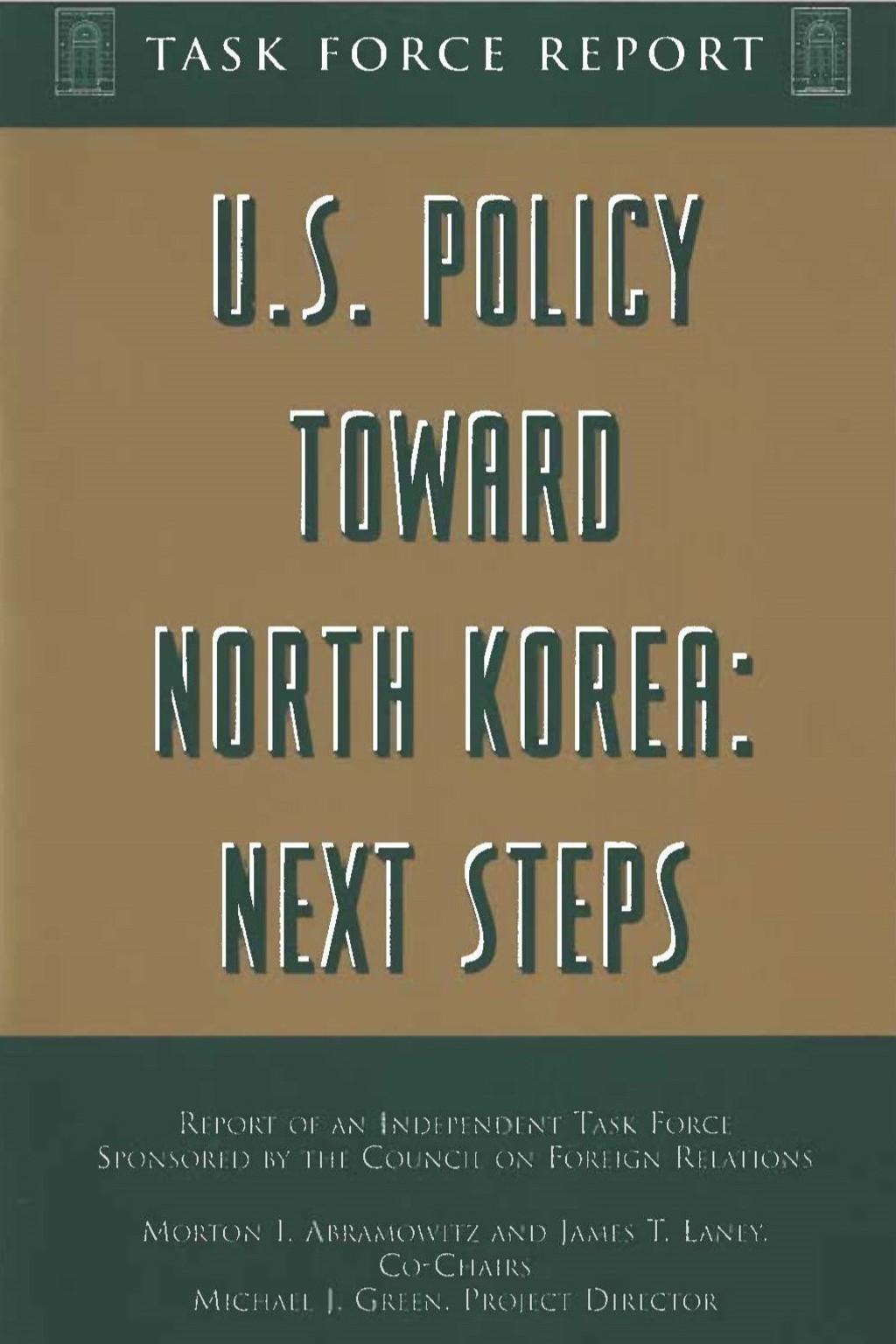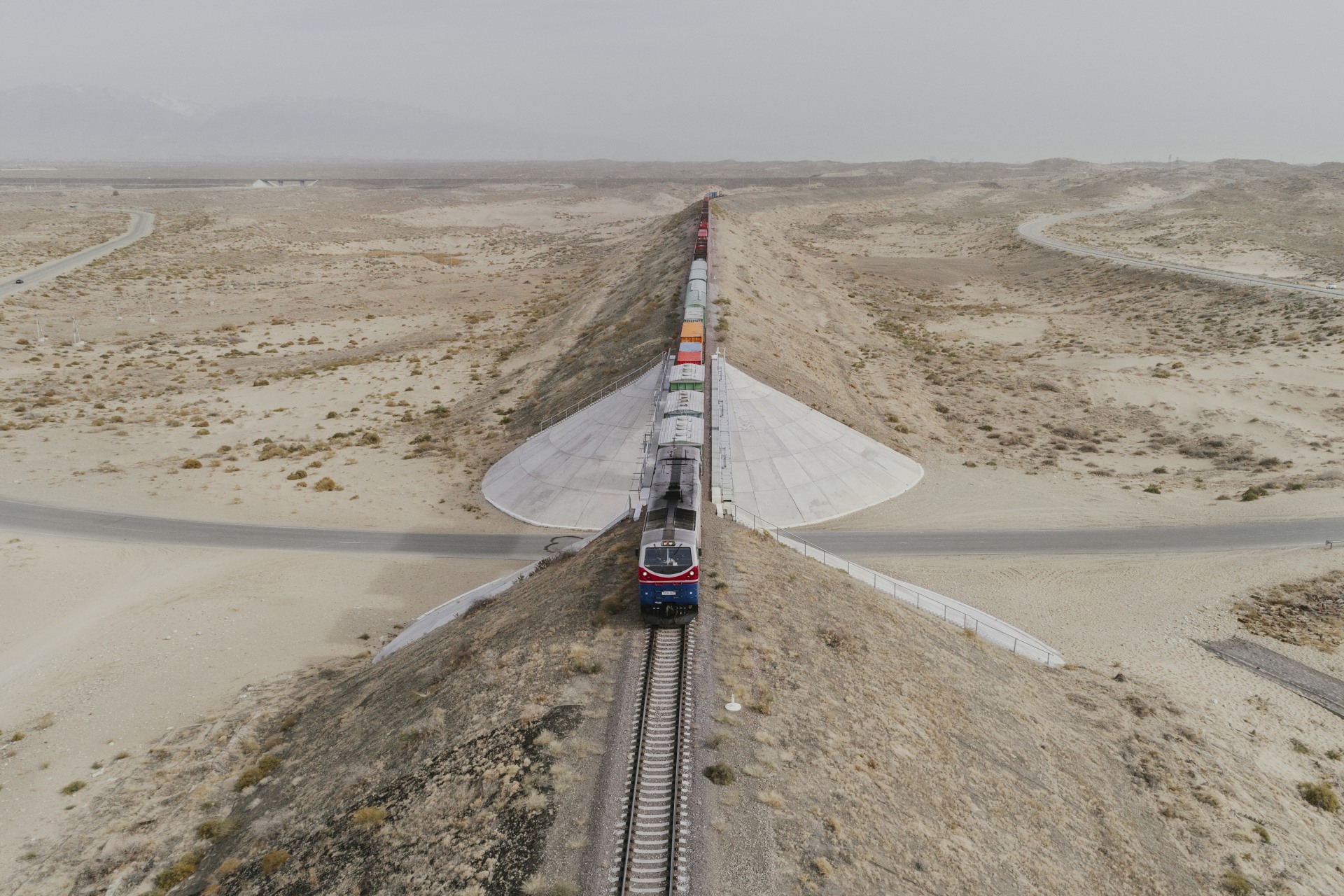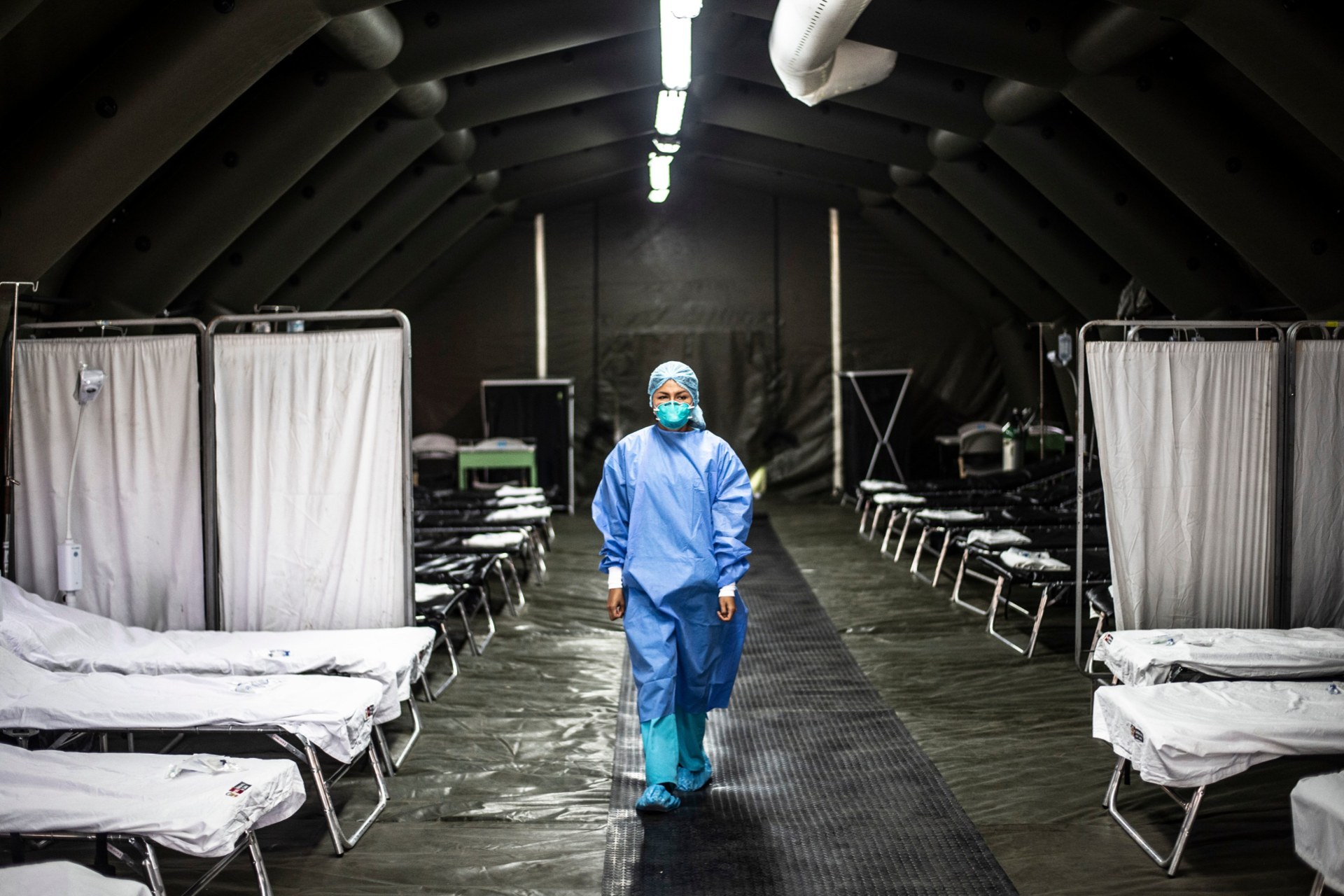Task Force Report No. #24
U.S. Policy Toward North Korea
Next Steps
- Morton The Honorable I. AbramowitzCochair
- James T. LaneyCochair
- Michael J. GreenDirector
What are Task Force Reports?
CFR sponsors Task Forces to assess issues of critical importance to U.S. foreign policy to reach bipartisan consensus on policy recommendations.
Who makes them?
Task Force members aim to reach a meaningful consensus on policy and are solely responsible for the content of their report.
The Korean peninsula remains one of the world’s most dangerous places. While North Korea has an army of 1.2 million troops and holds Seoul hostage with its missiles and artillery, Pyongyang is in desperate straits after a decade of economic decline, food shortages, and diplomatic isolation. In 1998, former U.S. Defense Secretary William Perry traveled to Pyongyang to propose increasing outside aid from the United States, South Korea, and Japan in exchange for North Korea’s promise to reduce military provocations.
The third in a series of influential Task Force reports on Korea policy, this study argues that, in spite of tensions, the United States should continue to support South Korea’s engagement policy and keep Perry’s proposal on the table. The Task Force recommends that, should North Korea increase tensions by testing long-range missiles, the United States and its allies should take a new approach to Pyongyang, including enhancing U.S.-Japan and South Korean deterrence against other North Korean threats, suspending new South Korean investment in North Korea, and placing new Japanese restrictions on financial transfers to the North. By suggesting the possibility of gradually reducing the danger on the Korean peninsula, this report represents a crucial addition to the discussion of U.S.-North Korean economic relations.
Task Force Members
Task Force Members:
MORTON I. ABRAMOWITZ is senior fellow of the Council on Foreign Relations. He was ambassador to Turkey and served as assistant secretary of state for intelligence and research.
EDWARD J. BAKER is associate director of the Harvard-Yenching Institute, a foundation associated with Harvard University that brings East Asian scholars to the United States for research and studies.
DANIEL E. BOB is special assistant for Asian and Pacific affairs for Senator William V. Roth Jr. (R-Del.), chairman of the Senate Finance Committee. He worked previously as assistant director for studies and policy programs at the Japan Society of New York and as a Fulbright Scholar in Fiji.
JEROME A. COHEN is C.V. Starr senior fellow for Asia Studies at the Council on Foreign Relations. He directs his law practice at the international law firm of Paul, Weiss, Rifkind, Wharton and Garrison and teaches at New York University Law School.
JAMES DELANEY is a consultant to the Institute for Defense Analyses. He served as an intelligence officer in East Asia for more than twenty years.
WILLIAM M. DRENNAN is a program officer at the United States Institute of Peace, specializing in Korean Peninsula security issues.
L. GORDON FLAKE is executive director at the Mansfield Center for Pacific Affairs. He was associate director of the program on conflict resolution at the Atlantic Council of the United States.
MICHAEL J. GREEN is senior fellow for Asia Security Studies at the Council on Foreign Relations. He is also acting director of the Edwin O. Reischauer Center for East Asian Studies at the Johns Hopkins University School of Advanced International Studies.
DONALD P. GREGG is chairman of the Korea Society. He served as U.S. ambassador to the Republic of Korea (1989-93).
FRANK S. JANNUZI is a member of the minority staff of the Senate Foreign Relations Committee. He served for eight years as the East Asia regional political-military analyst in the Bureau of Intelligence and Research, U.S. Department of State.
ARNOLD KANTER is senior fellow at the Forum for International Policy and a Principal in the Scowcroft Group. He served as undersecretary of state for political affairs (1991-93), and as special assistant to the president for defense policy and arms control (1989-91).
RICHARD KESSLER is minority subcommittee staff director, Subcommittee on International Security, Proliferation, and Federal Services, Governmental Affairs Committee, U.S. Senate.
JAMES T. LANEY is president emeritus of Emory University. He served as U.S. ambassador to the Republic of Korea (1993-97).
WINSTON LORD is a currently member of several non-government organizations, including serving as vice chairman of the International Rescue Committee. He has previously served as assistant secretary of state, ambassador to China and president of the Council on Foreign Relations.
ROBERT A. MANNING is senior fellow and director of Asia studies at the Council on Foreign Relations. He was a State Department adviser for policy (1989-93).
MARCUS NOLAND is senior fellow of the Institute for International Economics. He has served as the senior economist for international economics at the Council of Economic Advisers.
DONALD OBERDORFER, a former Washington Post correspondent, is distinguished journalist-in-residence at the Foreign Policy Institute of the Johns Hopkins University’s Nitze School of Advanced International Studies and author of The Two Koreas.
DOUGLAS H. PAAL is president of the Asia Pacific Policy Center (APPC). Prior to forming the APPC, he was special assistant to President George W. Bush and President Ronald Reagan for national security affairs and senior director for Asian affairs on the National Security Council.
JAMES J. PRZYSTUP is senior fellow of the Institute for National Strategic Studies at National Defense University. He was director of the Asian Studies Center at the Heritage Foundation.
JASON T. SHAPLEN is a policy adviser at the Korean Peninsula Energy Development Organization (KEDO) where his primary responsibility is to prepare and negotiate agreements between KEDO and North Korea in connection with the light-water-reactor nuclear project.
SCOTT SNYDER is undertaking independent research under the sponsorship of the Abe Fellowship program of the Social Sciences Research Council. He is currently on leave from the U.S. Institute of Peace, where he is a program officer in the research and studies program.
STEPHEN J. SOLARZ is president of Solarz Associates. He served for eighteen years in the U.S. House of Representatives and for twelve of those years as chairman of the Subcommittee on Asian and Pacific Affairs. He now heads an international business consultancy.
HELMUT SONNENFELDT is a guest scholar with the foreign policy studies program at the Brookings Institution. He is a director and member of the executive committee of the Atlantic Council of the United States and a trustee of the Johns Hopkins University.
NANCY BERNKOPF TUCKER is professor of history at Georgetown University and the Georgetown School of Foreign Service. She served in the State Department Office of Chinese Affairs and the U.S. Embassy, Beijing (1986-87).
WILLIAM WATTS is President of the Potomac Associates. He served as Foreign Service officer with service in Korea, Germany, and the Soviet Union, and as staff secretary at the National Security Council.
DONALD S. ZAGORIA is a professor of government at Hunter College and an adjunct professor of government at Columbia University. He is also a trustee of the National Committee on American Foreign Policy.






